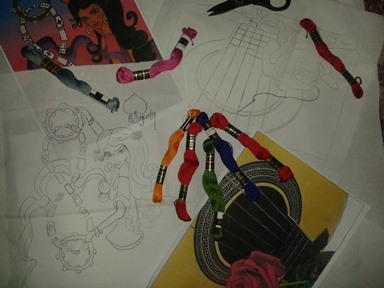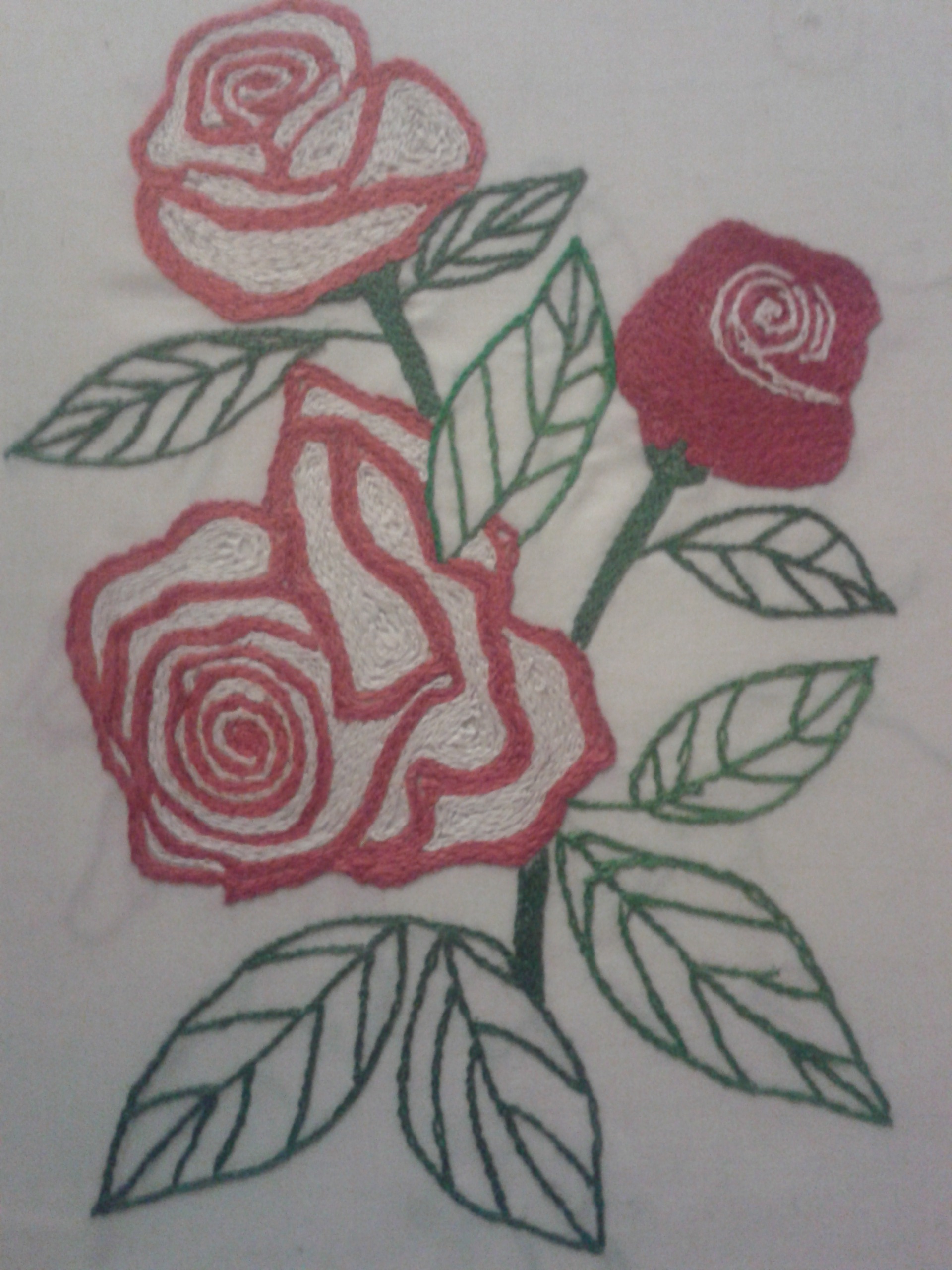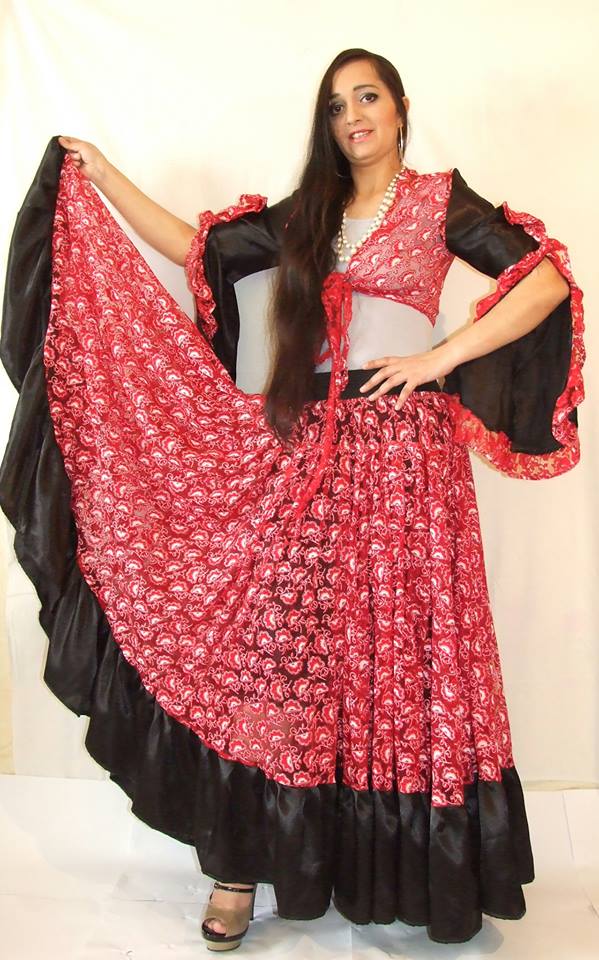Entrepreneurship of Roma Women
www.facebook.com/RomaIntegrationHouse/timeline

In this example the opportunity to participate is the single biggest factor. Roma young women facing oppression from within their own community and by the wider community took the opportunity to participate in a project that affirmed them as individuals and allowed them to develop skills. The organisation provided the space and support for this participation to happen.
Keywords for participation: Opportunity / Space / Support
The Situation of Young Roma Women

In Lithuania the majority of the Roma families remain largely unaware of the benefits of education for young women – around 52% of Roma in Lithuania have no primary education. Early marriage, at the age of 14 or 15, is common. Most Roma women receive social welfare / child support, but this is often not sufficient to provide for their children and older relatives. Roma women find it hard to gain employment. Prejudice and discrimination, even towards educated Roma women, is common. The tendency for Roma women to adopt traditional dresses, and their sometimes poor command of the Lithuanian language, make them an easy target for discrimination. At the same time within Roma groups there is often strong disapproval of women taking employment outside the home. Consequently many Roma women in Lithuania live in poverty.
Some Roma women engage in fortune-telling while others are obliged to take a role in drug-dealing. Both activities are criminal offences, and many Roma women find themselves having to cope with prison sentences; re-offending is common. Some take responsibility for their husbands when the latter are accused of selling drugs, being under the impression that the prison regime is more lenient on women. As a result, there are many children spending periods in the care of other family members, special institutions, or lone fathers.
Roma Integration House – Lithuania

Roma Integration House was a partner with Vilnius University, Faculty of Applied Sciences, in organising the international week, Pedagogues against Discrimination in April 2012. Also in 2012, they were invited by the European Commission Office in Lithuania to the round-table discussion, Roma in the European Union and in Lithuania. They are active in Roma rights advocacy and, together with other NGOs, submitted the Resolution on the National Roma Integration Plan for the Ministry of Culture. In 2014 they were invited to discuss the proposals for the governmental strategy of Roma integration.
Entrepreneurship of Roma Women

The eight young women in the Entrepreneurship of Roma Women project were all unemployed, although some were occasionally engaged in artistic performances in concerts and cultural events. This project was their first opportunity to work towards receiving a qualification. Activities included workshops on design, embroidery and sewing skills, a training course in English, developing a website, and producing two exhibitions with the pictures and costumes they created. The young women produced 10 original handcrafted framed pictures of embroidery, and five original, traditional Roma costumes.
The project combined entrepreneurial activities and skills by exploring elements of the Roma culture. This proved to be innovative, enriching and motivating for everyone concerned. The project showed the young women that they are able to organise activities on a business and management level. Through the exhibitions they also contributed to the enhancement of the image of the Roma women in Vilnius.
Participation in Action

As part of increasing the entrepreneurial skills of the young Roma women, the project provided them with opportunities to increase their practical skills, relationship building and independence. The young women were expected to guide the process, manage the project, promote the results, and to bring it all to the community – thereby creating a space of participation in the community for themselves. They developed, co-ordinated, implemented and developed all aspects of their participation. They achieved this through learning practical skills in administration, website development, the staging of exhibitions, and public relations activities. All of this led to the development of confidence in themselves and others.
Participation in the Roma Community
The project provided the young Roma women with an opportunity to demonstrate the potential of young Roma women to promote social change for themselves and their families in a challenging social context. Through their entrepreneurship the young women challenged the majority perceptions of the role of Roma women. They showed themselves capable of organising activities outside of the domestic environment.
Participation in the Wider Society
The project enabled them as Roma young women to make themselves visible to the wider community in a non-stereotypical role. Their participation and commitment represented an example of how young Roma women can challenge negative cultural images and become engaged in the community. They showed Roma culture to be an inspirational resource and provided an example of the potential for initiative of young Roma women from both poor and marginalised neighbourhoods.
Outcomes
The young Roma women developed a website that was the main instrument in promoting the work of the participants. It functioned as an online shop, inviting visitors to the site to browse, rent and buy costumes and other items handmade by the Roma women. It also featured the means for clients to submit a customised order. Revenue from the website was reinvested into new equipment and materials or compensation to the women for their working hours.
This project provided qualifications and social competences to the young Roma women. It created a means for them to achieve, and to support themselves and their families financially. It provided them with the possibility of starting their own business. After the conclusion of the project, all the women continued working individually. Roma Integration House is looking for opportunities to start another similar project to continue this work of establishing stable employment for young Roma women.
Linking economic opportunity and participation in society
One important lesson learnt from the project concerns the link between economic opportunities, or the opportunity to be an economic agent, and the possibility to have access to social opportunities and participation. Through their active involvement in this economic project, Roma women also contributed to the change of their image in society. They challenged gender roles and they contributed to the improvement of the economic conditions of their families. This example highlights that improving economic conditions is a key step in moving towards participation. At the same time, the process of improving economic conditions must go hand in hand with the participation of those concerned.






